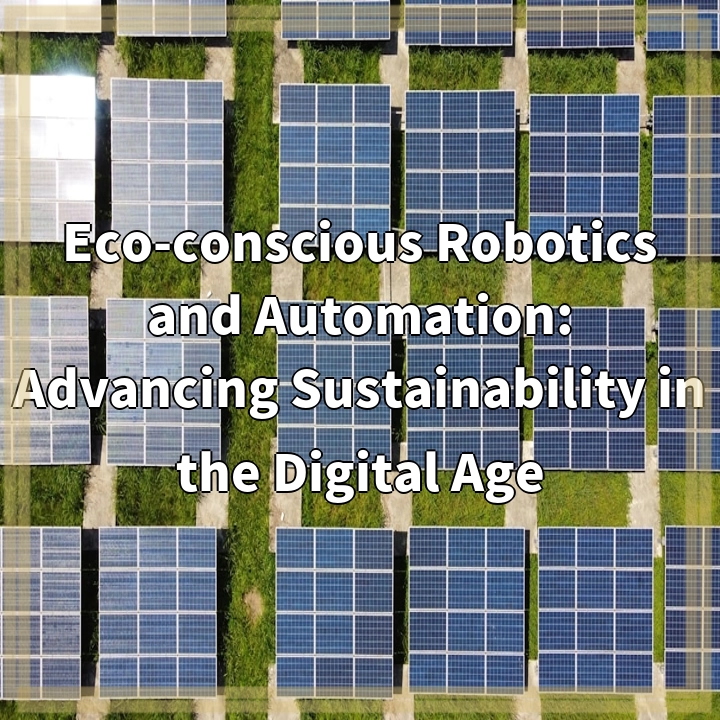
What is Eco-conscious Robotics and Automation?
Eco-conscious robotics and automation refers to the integration of environmentally-friendly practices and technologies in the field of robotics and automation. It focuses on developing and utilizing robotic systems and automated processes that minimize negative impacts on the environment and contribute towards sustainability goals.
Real-World Problems Associated with Eco-conscious Robotics and Automation
Eco-conscious robotics and automation aim to address various environmental challenges and promote sustainable practices. Here are some of the key real-world problems that this field aims to tackle:
1. Energy Consumption:
The traditional approach to robotics and automation often involves large energy consumption, which leads to increased carbon emissions and contributes to climate change. Eco-conscious robotics and automation strives to develop energy-efficient systems that minimize energy consumption through the use of advanced sensors, efficient algorithms, and optimized control mechanisms.
2. Waste Generation:
The manufacturing and maintenance of robotics and automation systems can generate significant amounts of waste, including electronic waste, plastic packaging, and toxic materials. Eco-conscious approaches focus on designing robots and automation processes that reduce waste generation, promote recycling and reuse of materials, and adopt sustainable manufacturing practices.
3. Sustainable Materials:
Conventional robotic systems often utilize materials that have a significant environmental impact, such as plastics derived from fossil fuels. Eco-conscious robotics and automation explore alternatives, such as bio-based or recycled materials, that have a lower ecological footprint and are more sustainable throughout their lifecycle.
4. Carbon Footprint:
The transportation and logistics involved in the deployment and maintenance of robotic systems can contribute to carbon emissions. Eco-conscious approaches aim to minimize this impact by exploring localized production, optimizing transportation routes, and promoting the use of renewable energy sources for operation.
5. Ethical Considerations:
Eco-conscious robotics and automation also address ethical considerations related to the impact of automation on employment and social equity. This includes exploring ways to ensure a just transition for workers, addressing potential job displacement, and promoting inclusive deployment of robotic systems that benefit all members of society.
By addressing these real-world problems, eco-conscious robotics and automation can play a vital role in advancing sustainability in the digital age. It offers opportunities to reduce environmental harm, increase resource efficiency, and contribute to a more sustainable and equitable future.

Solutions for Eco-conscious Robotics and Automation
When it comes to addressing the real-world problems associated with eco-conscious robotics and automation, several key solutions are emerging:
1. Energy Efficiency:
Developing energy-efficient robotic systems and automation processes is crucial. This involves the use of advanced sensors for optimized energy consumption, intelligent algorithms to optimize power usage, and the adoption of renewable energy sources to power these systems.
2. Waste Reduction and Recycling:
Eco-conscious approaches prioritize waste reduction and recycling throughout the lifecycle of robotics and automation systems. This includes designing systems with modular components for easier repair and upgrades, utilizing recycled materials, and promoting responsible disposal and recycling of end-of-life components.
3. Sustainable Materials and Manufacturing:
Exploring sustainable materials and manufacturing processes is essential for eco-conscious robotics and automation. This involves utilizing bio-based or recycled materials, adopting cleaner manufacturing practices, and embracing circular economy principles to minimize resource consumption and waste generation.
4. Carbon Neutral Operations:
To address the carbon footprint associated with the deployment and maintenance of robotic systems, a shift towards carbon-neutral operations is necessary. This can be achieved by optimizing supply chains and logistics, adopting renewable energy sources for powering operations, and exploring localized manufacturing and maintenance.
5. Ethical Governance:
Ethical considerations must be a key aspect of eco-conscious robotics and automation. This includes ensuring responsible deployment through stakeholder engagement, addressing potential job displacement through retraining and transition programs, and promoting equitable access to robotic technologies to avoid exacerbating social inequalities.
By implementing these solutions, eco-conscious robotics and automation can revolutionize industries while minimizing their environmental impact. This field offers exciting opportunities to create a more sustainable and equitable future in the digital age.















